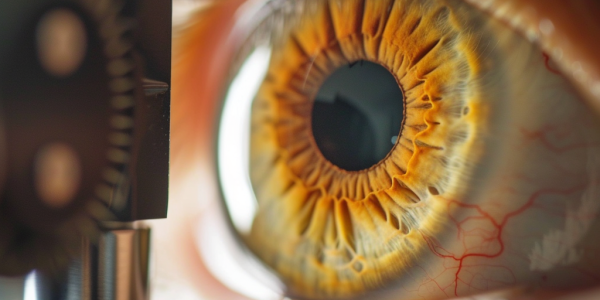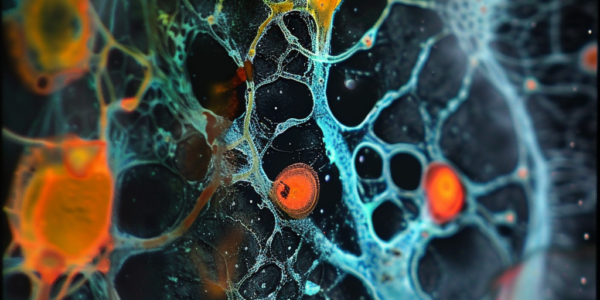Valacyclovir Shows Promise in Treating Herpes Zoster Ophthalmicus, Study Finds
Recent research presented at the American Academy of Ophthalmology highlights the benefits of valacyclovir in treating herpes zoster ophthalmicus (HZO). Led by Dr. Elisabeth Cohen, the study found that valacyclovir significantly reduces the risk of new or worsening eye disease and decreases the need for neuropathic pain medications. These findings support the use of valacyclovir as a key treatment option for improving the quality of life in HZO patients.
AI Innovations Enhance Early Detection of Myopic Maculopathy
A groundbreaking study from Arizona State University reveals how artificial intelligence (AI) is transforming the early diagnosis of myopic maculopathy, a severe complication of myopia. With myopia rates projected to affect nearly half of the global population by 2050, this innovative research highlights the importance of timely detection and intervention to prevent vision loss. By leveraging AI, healthcare professionals can enhance diagnostic accuracy and improve outcomes for vulnerable populations, especially children.
Breakthrough Discovery of UBAP1L Gene Offers Hope for Inherited Retinal Diseases
Scientists at the NIH have identified the UBAP1L gene linked to inherited retinal diseases, enhancing understanding and paving the way for genetic testing and targeted therapies. This breakthrough offers hope for the millions affected by retinal dystrophies, highlighting the importance of genetic evaluation in developing effective treatments.
Alarming Rise in Myopia Among Children Linked to Pandemic Lifestyle Changes
Recent research reveals that one in three children globally is affected by myopia, with rates tripling since 1990. The study, published in the British Journal of Ophthalmology, highlights the impact of lifestyle changes during the COVID-19 pandemic, particularly increased screen time and reduced outdoor activities. Urgent action is needed to address this public health concern as projections suggest over half of teenagers could be myopic by 2050.
Study Finds Children and Teens Often Prescribed Antibiotics Unnecessarily for Pink Eye
Study finds that children and teens are often prescribed antibiotics for pink eye, despite recommendations against it. Research shows that antibiotics are ineffective against viral infections like conjunctivitis, highlighting the importance of evidence-based guidelines to avoid unnecessary antibiotic treatments.
Robot-Controlled Radiotherapy Shows Promise in Treating Age-Related Macular Degeneration
Robot-controlled radiotherapy shows promising results in reducing the number of injections needed for patients with age-related macular degeneration (AMD). With potential cost savings and improved patient experience, this innovative approach could revolutionize the treatment of this prevalent eye disease, offering hope for better outcomes and enhanced quality of life.
Eye Tests Show Promise in Predicting Parkinson’s Disease Progression
A recent study has found that measuring the thickness of the retina through eye tests can help predict the progression of Parkinson’s disease. By identifying retinal degeneration early, routine eye exams could become a non-invasive tool for predicting the severity of symptoms, leading to more targeted treatment strategies and better outcomes for patients.
AI Revolutionizes Retinal Imaging
Artificial intelligence has revolutionized retinal imaging, making it 100 times faster and improving image contrast 3.5-fold. This advancement is a game-changer for evaluating age-related macular degeneration and other retinal diseases, offering researchers a more effective tool for early detection and treatment.
Oculomics and AI: Gaining Systemic Health Insights from the Eye
Occuity scientists Emily Patterson and Dr. Alistair Bounds discuss the potential of oculomics in providing insights into systemic health conditions, emphasizing the role of the eye in revealing past, present, and future health indicators. They highlight the use of artificial intelligence in analyzing eye data to identify health indicators not discernible to the human eye, showcasing examples such as estimating levels of coronary artery calcium and detecting advanced glycation end products in diabetic patients. The presentation underscores the promising potential of leveraging oculomics and AI for non-invasive health monitoring and disease detection.
Groundbreaking Study Shows Promise in Restoring Sight in Mice
Groundbreaking study in mice shows potential for restoring sight in individuals with damaged optic nerves, offering hope for treating conditions like glaucoma. Experts emphasize the need for further research to validate the approach’s effectiveness and ascertain its potential in treating blindness in humans. The study’s implications extend beyond ophthalmology, offering hope for individuals grappling with vision impairment and heralding a potential breakthrough in the field of vision restoration.










